This Dot Blog
This Dot provides teams with technical leaders who bring deep knowledge of the web platform. We help teams set new standards, and deliver results predictably.
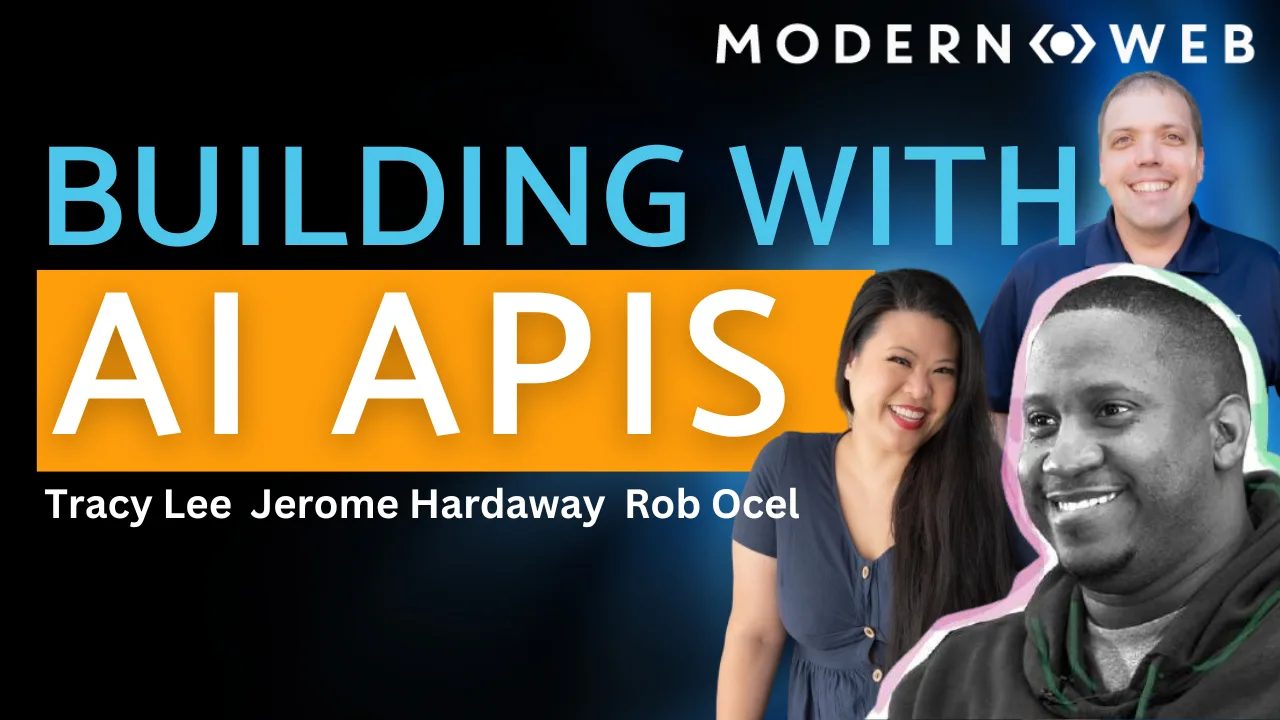
6 Steps to AI Adoption: Building with AI APIs
Tracy Lee, Jerome Hardaway, and Rob Ocel continue their six part series on the six steps for AI adoption. In this episode they discuss AI API integration and better building with AI models. One key takeaway was the importance of choosing the right tools for specific tasks. Jerome emphasized the significance of using content moderation APIs for filtering inappropriate content as an example. These tools help developers improve user experiences by ensuring content accuracy and appropriateness. However, Jerome also warned against blindly relying on AI tools and encouraged programmers to assess their benefits and limitations before implementation. The discussion also touched on how AI impacts coding abilities and problem-solving. AI-powered tools can boost developer productivity by automating repetitive tasks and offering helpful suggestions. Yet, it's important to strike a balance and not become overly dependent on AI, which could hinder critical thinking and problem-solving skills crucial for programmers. One challenge discussed was the difficulty of working with poorly documented APIs, which makes it hard for developers to understand and utilize AI tools effectively. While AI has the potential to enhance productivity and user experiences, it's important for developers to choose the right tools and avoid over-reliance. By carefully evaluating AI tools and investing in clear documentation, developers can leverage AI effectively to improve their coding abilities and problem-solving skills. Download this episode here!...
Apr 15, 2024
2 mins

JSR - The cross-platform package manager for ESM
Learn about JSR, a new package manager for the modern JS/TS ecosystem....
Apr 12, 2024
6 mins
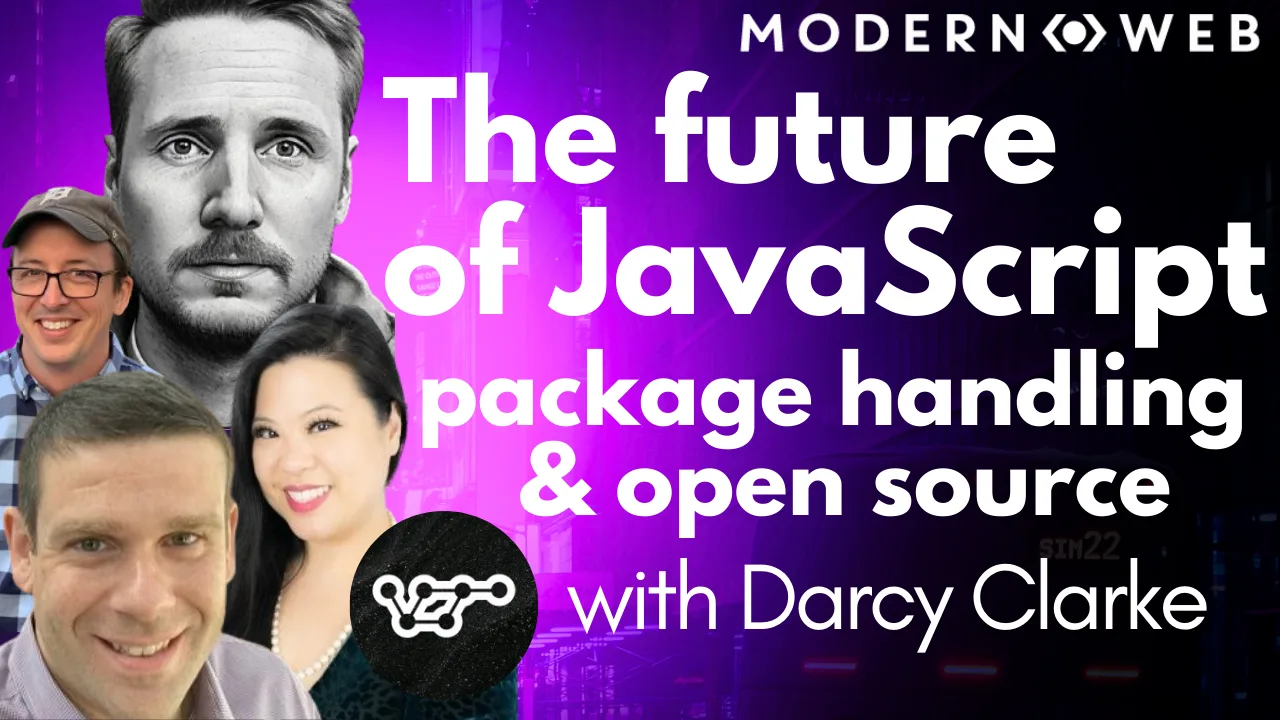
The Future of JavaScript Package Handling and Open Source with Darcy Clarke
Darcy Clarke shares his thoughts on package distribution, open-source sustainability, and vlt.sh, a new package manager which he has been building with npm Creator Isaac Schlueter and Node TSC member Ruy Adorno. This conversation with Tracy Lee, Adam Rackis, and Ben Lesh sheds light on the challenges faced by developers, the imperative for enhanced tools, and the significance of collaboration and innovation within the community. Darcy Clarke pressed the need for simplified package authoring, advocating for improved tools within the JavaScript ecosystem to streamline processes and boost developer productivity. He underscored the hurdles encountered by package authors and the potential for innovation in this domain. As JavaScript continues, the need for efficient package distribution and management tools becomes increasingly paramount. Download this episode here....
Apr 12, 2024
1 min
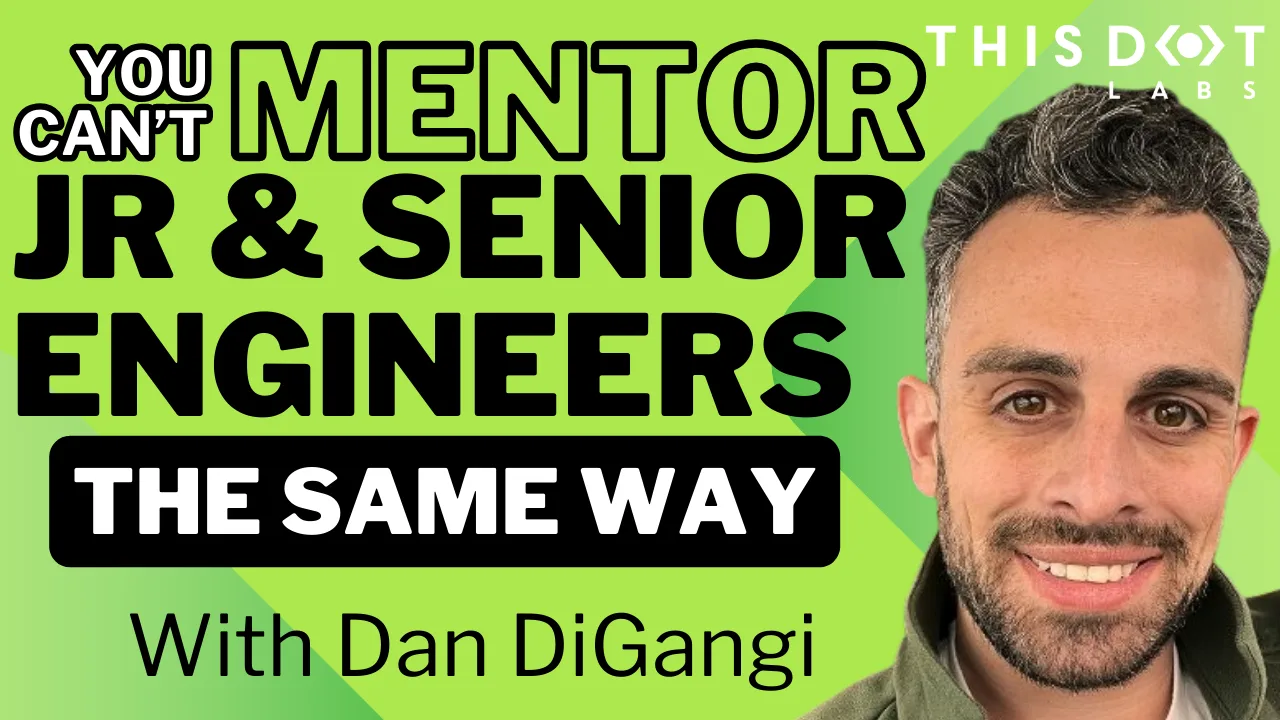
You Can’t Mentor Junior and Senior Engineers the Same with Dan DiGangi
In this episode of the Engineering Leadership series, Dan Gigangi shed light on the crucial role that engineering leaders play in promoting a culture of learning within their organizations, focusing on the importance of adapting communication styles, expanding impact beyond coding, setting long-term visions, and navigating the challenges of transitioning from technical roles to leadership positions. One of the key points emphasized by Dan Gigangi is the significance of adapting communication styles to cater to different skill levels. Effective communication is essential for fostering collaboration and ensuring that complex technical concepts are understood by all team members. By tailoring their communication approaches, engineering leaders can bridge the gap between varying levels of expertise, creating a cohesive and productive work environment. Dan highlights the need for senior engineers to make a broader impact beyond coding. While technical expertise is undoubtedly important, engineering leaders should encourage their team members to think beyond their immediate tasks and consider the larger organizational goals. By empowering senior engineers to take on leadership roles and contribute to strategic decision-making, leaders can foster a culture of innovation and drive long-term success. The conversation between Dan Gigangi and Tracy Lee also emphasizes the importance of setting long-term visions and executing strategic plans for career progression. Engineering leaders should guide their team members in envisioning their professional goals and provide guidance on how to achieve them. By creating a roadmap, leaders can inspire their team members to continuously learn and grow, ultimately driving their own career advancement and contributing to the success of the organization. Dan also discusses the challenges and pitfalls of transitioning from technical roles to leadership positions. While technical expertise is a solid foundation, engineering leaders must also develop non-technical skills such as communication, relationship-building, and strategic thinking. This transition requires a shift in mindset and the ability to navigate complex organizational dynamics. By recognizing and addressing these challenges, aspiring leaders can better prepare themselves for the demands of leadership roles. Download this episode here....
Apr 11, 2024
2 mins
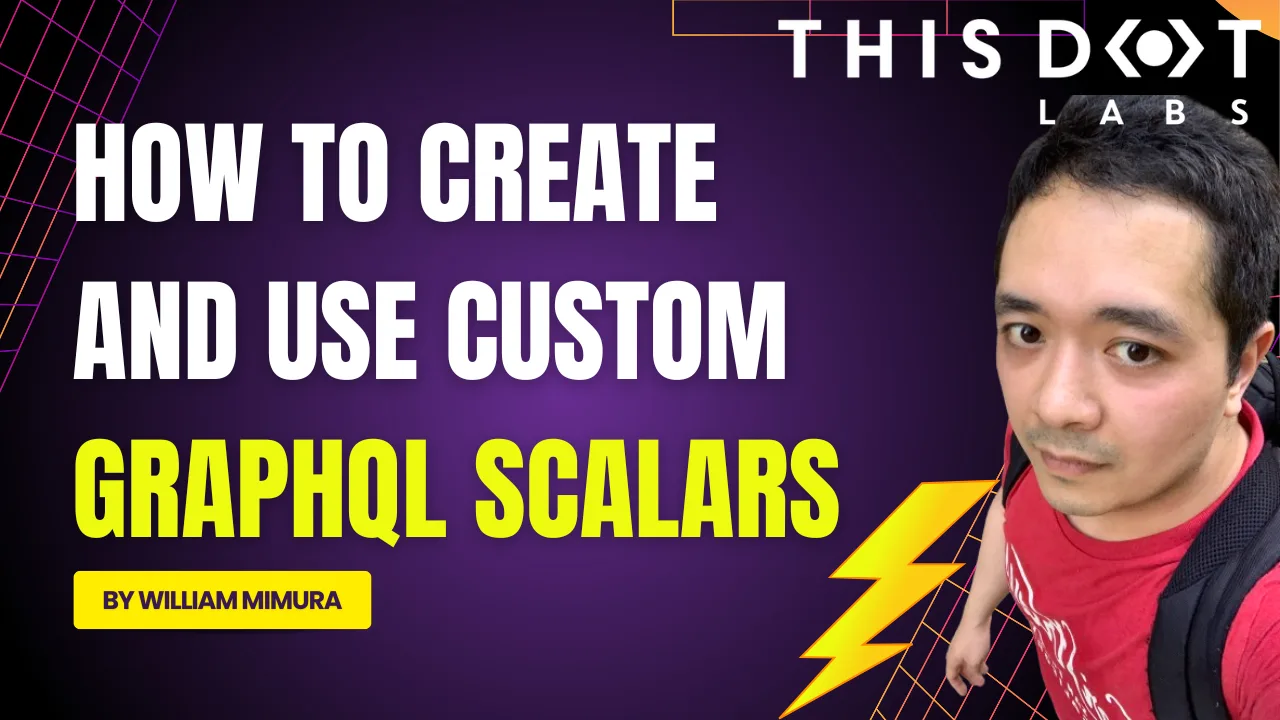
How to create and use custom GraphQL Scalars
Enter the world of custom GraphQL scalars. These data types go beyond the conventional, offering the power and flexibility to tailor your schema to precisely match your application's unique needs....
Apr 10, 2024
5 mins
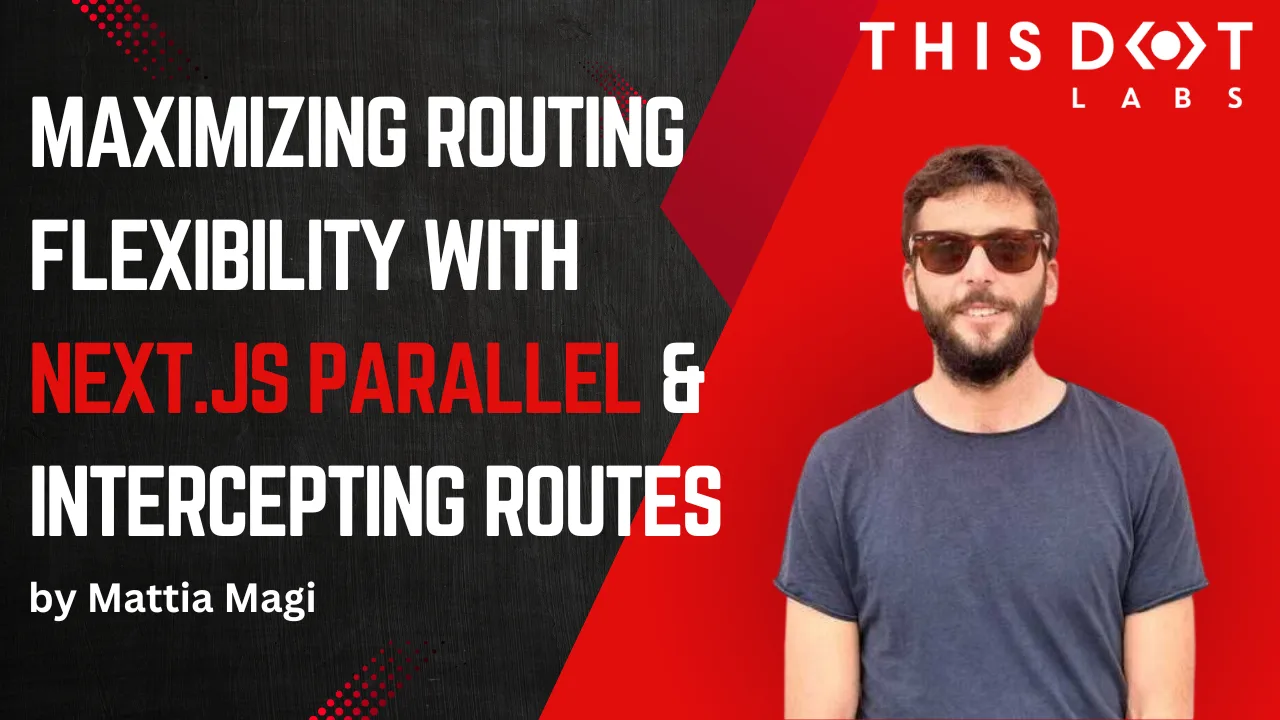
Maximizing Routing Flexibility with Next.js Parallel and Intercepting Routes
Dive deep into Next.js Parallel Routes and Intercepting Routes! Unleash the potential of these features for optimized performance and seamless user experiences....
Apr 5, 2024
3 mins
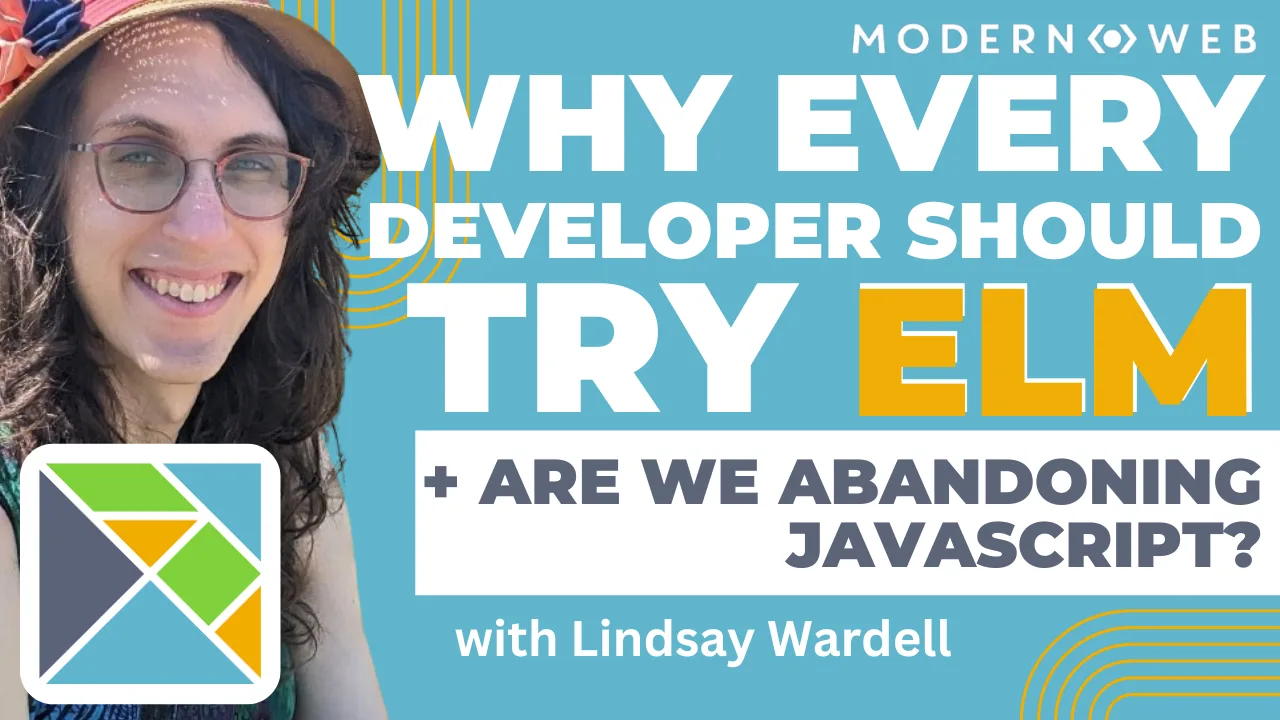
Why Every Developer Should Try Elm, + Are We Abandoning JavaScript? with Lindsay Wardell
Lindsay Wardell, Senior Software Engineer at NoRedInk joins Rob Ocel by covering many of the functional programming advantages afforded by Elm. By immersing themselves in the intricacies of languages like Elm, developers can harness its functional approach to bolster application resilience and minimize errors. Lindsay draws parallels with TypeScript's emphasis on strong typing, and how it empowers developers to detect and rectify errors early on, fostering the creation of more maintainable codebases. A pivotal theme emerging from Lindsay's discussions is the importance of adaptability in choosing which languages a developer focuses their energy on. As technology continues to evolve, developers must embrace versatility to remain competitive. Lindsay and Rob Ocel talk about the potential shifts in front-end development paradigms, beyond the dominance of component-based frameworks like React. This underscores the necessity of keeping an open mind and exploring emerging technologies to stay at the forefront of the industry's evolution. Moreover, Lindsay and Rob accentuate the significance of tools such as Nuxt for facilitating seamless backend integration within frameworks like Vue.js. These integrations streamline the development process, enabling developers to concentrate on crafting robust and scalable applications. Their conversations serve as a testament to the ongoing evolution of programming tools, marked by a trend towards simplification and enhanced development efficiency. Download this episode....
Apr 3, 2024
1 min
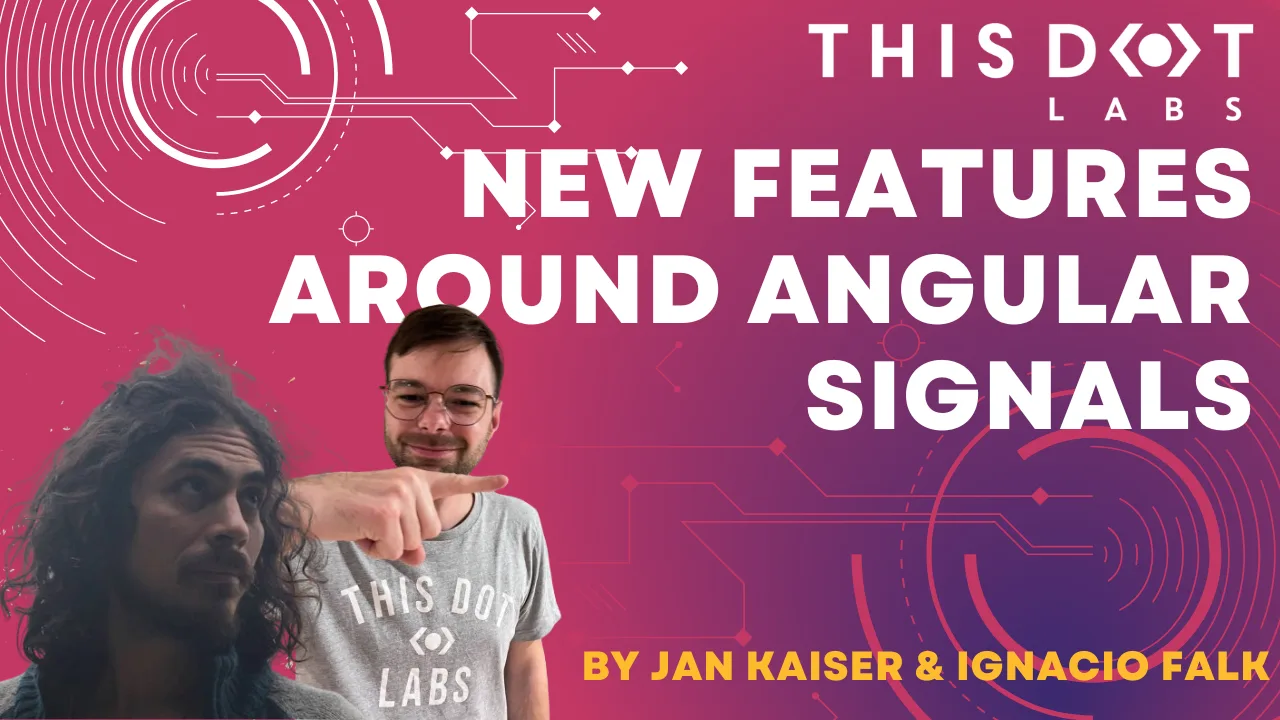
Overview of the New Signal APIs in Angular
Google's Minko Gechev and Jeremy Elbourn announced many exciting things at NG Conf 2024. Among them is the addition of several new signal-based APIs....
Apr 3, 2024
3 mins
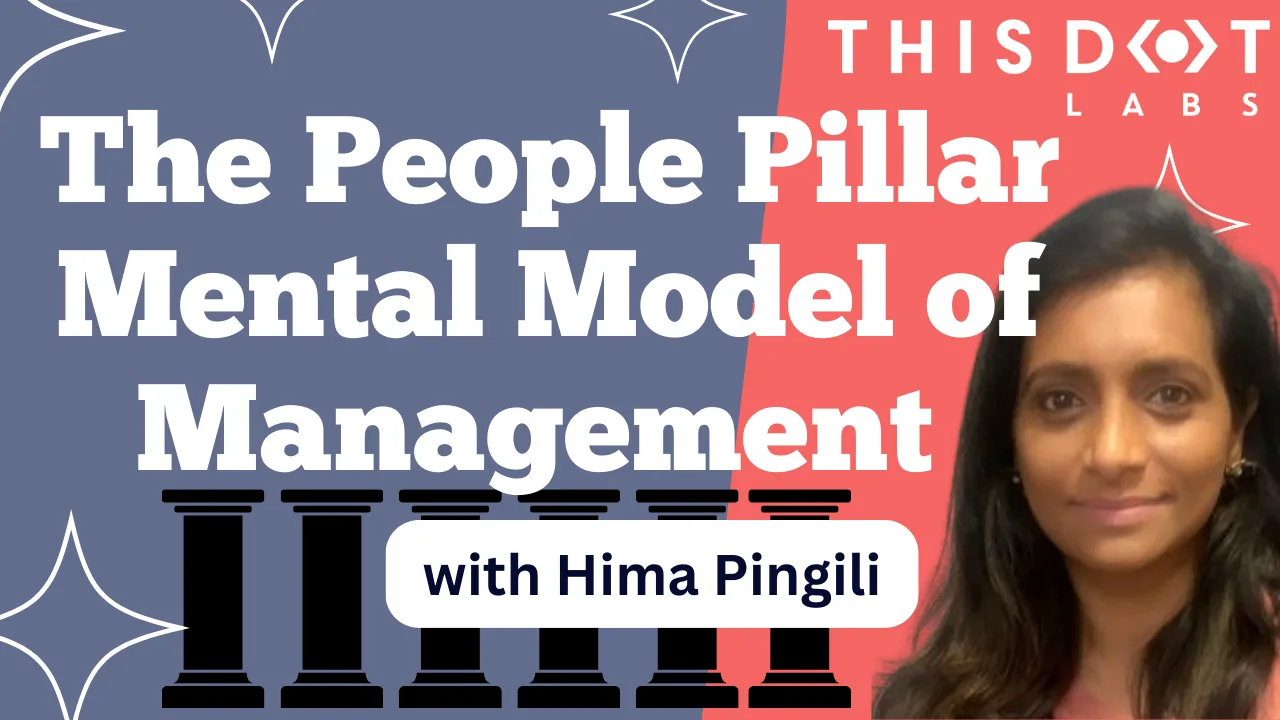
The People Pillar Mental Model of Management with Hima Pingili
Hima Pingili, VP of Data and Software Engineering at Cipherhealth, discussed the pivotal role of the "people pillar" engineering leadership mental model. She underscored the significance of investing in team members and offering transparent feedback to facilitate their growth, emphasizing that investing in people significantly contributes to job satisfaction and retention. Hima also elaborated on the importance of establishing individual goals, fostering continuous feedback loops, and promoting collaboration as essential elements for team success. A key takeaway from the interview was the emphasis on developing team members. Hima stressed the value of investing in people's growth, even if its impact isn't immediately measurable. By providing avenues for advancement and skill enhancement, leaders can enhance job satisfaction and retain top talent within their teams. This focus on the "people pillar” is fundamental for constructing a thriving engineering team. Hima highlighted the necessity for systematic, data-driven feedback that offers actionable insights for individual improvement. Through consistent feedback mechanisms and clear goal setting, leaders can empower their team members to evolve and realize their full potential. Building trust through open communication and regular feedback is essential for nurturing a positive and productive work atmosphere. Lastly, Hima underscored the profound impact of effective management on employee retention and the importance of tailored growth opportunities. Acknowledging and addressing employees' needs is crucial for fostering enduring relationships and organizational prosperity. By prioritizing the growth and development of team members, leaders can cultivate a supportive and collaborative environment conducive to job satisfaction and sustained success. Download this podcast episode here....
Apr 2, 2024
2 mins
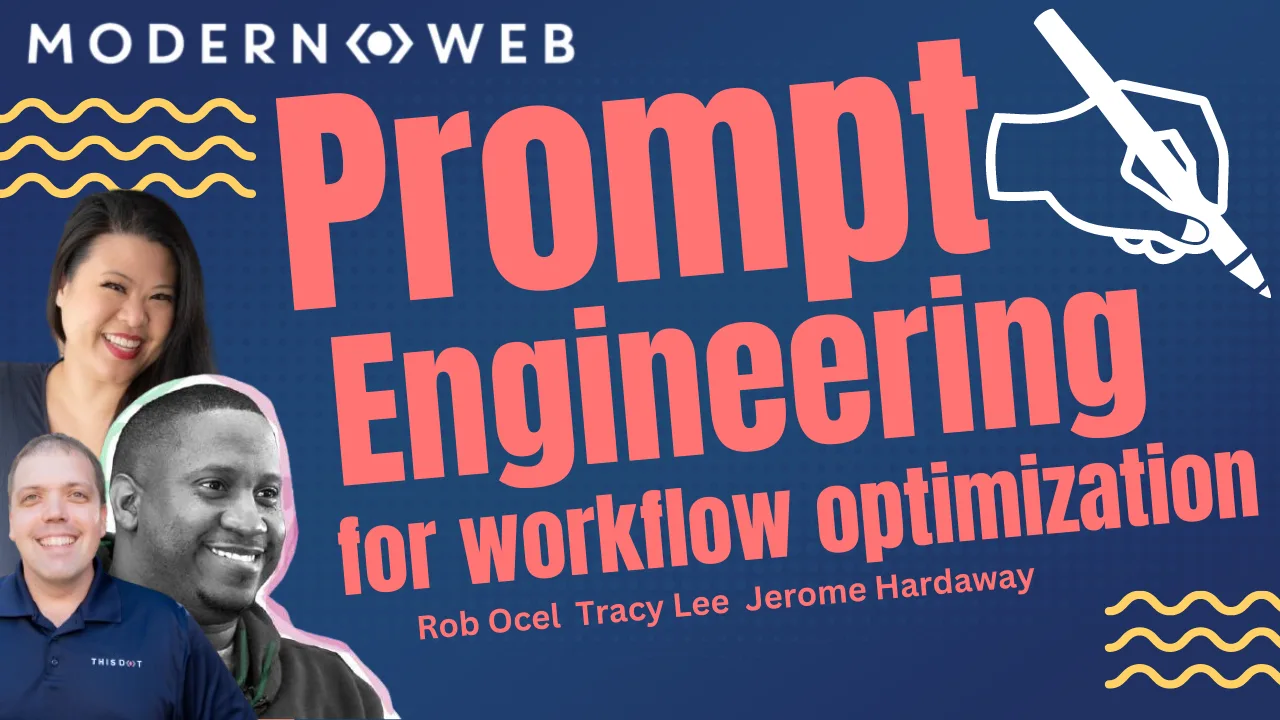
6 Steps to AI Adoption: Prompt Engineering for Workflow Optimization with Jerome Hardaway
Tracy Lee, Rob Ocel, and Jerome Hardaway continue their six part series on adopting AI technology into your workflow. In this episode, they discuss the importance of prompt engineering in optimizing AI interactions, emphasizing the need for clear communication, task breakdown, and effective tooling. Jerome stressed the need for a thorough understanding of AI prompts, cautioning against humanizing AI. He encouraged developers to focus on leveraging prompt patterns for enhancing code quality, emphasizing the importance of breaking down tasks and clearly communicating desired outcomes to ensure AI models generate accurate responses. The conversation also touched upon fine-tuning language models, where developers can train models on specific prompts and datasets to tailor AI interactions to meet specific requirements. This process enables more precise and context-aware responses, ultimately improving the user experience. Download this episode here....
Apr 1, 2024
1 min
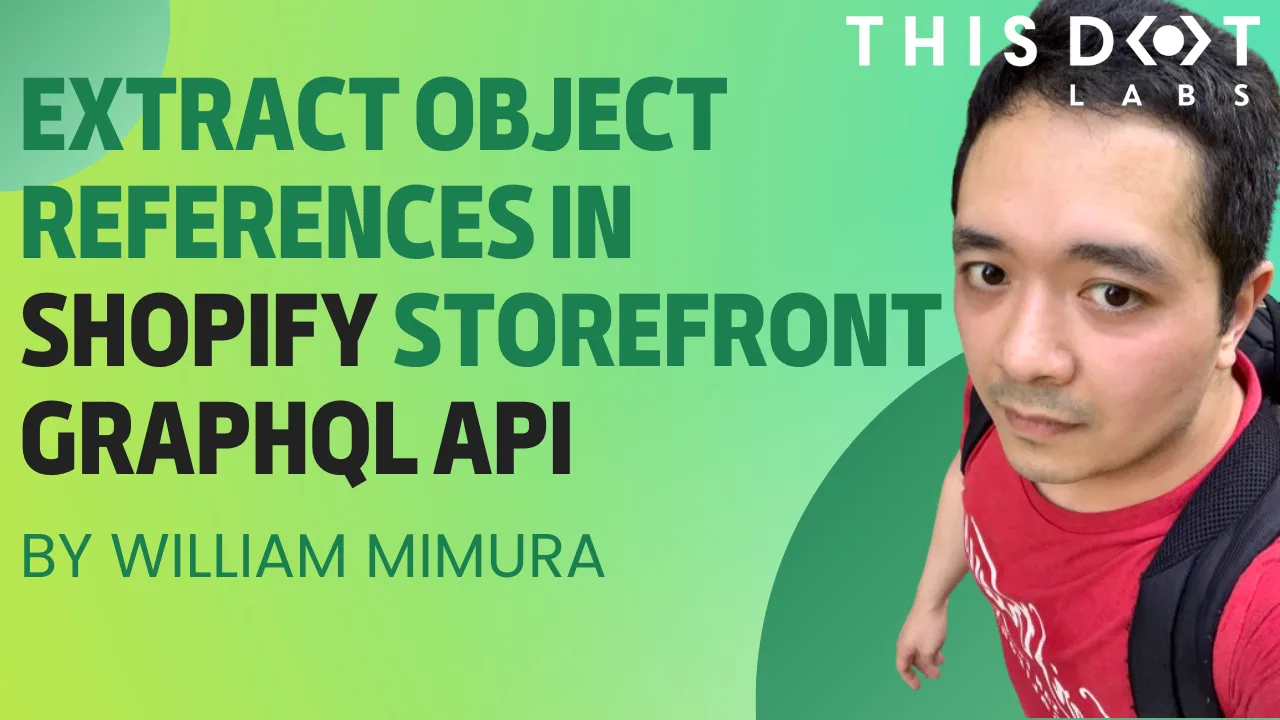
Efficiently Extract Object References in Shopify Storefront GraphQL API
Dive into the intricacies of Shopify's Storefront API with our blog post, 'Efficiently Extract Object References in Shopify Storefront GraphQL API'. Discover a hands-on guide to extracting complex data types, like images, from metafields and metaobjects....
Mar 29, 2024
4 mins
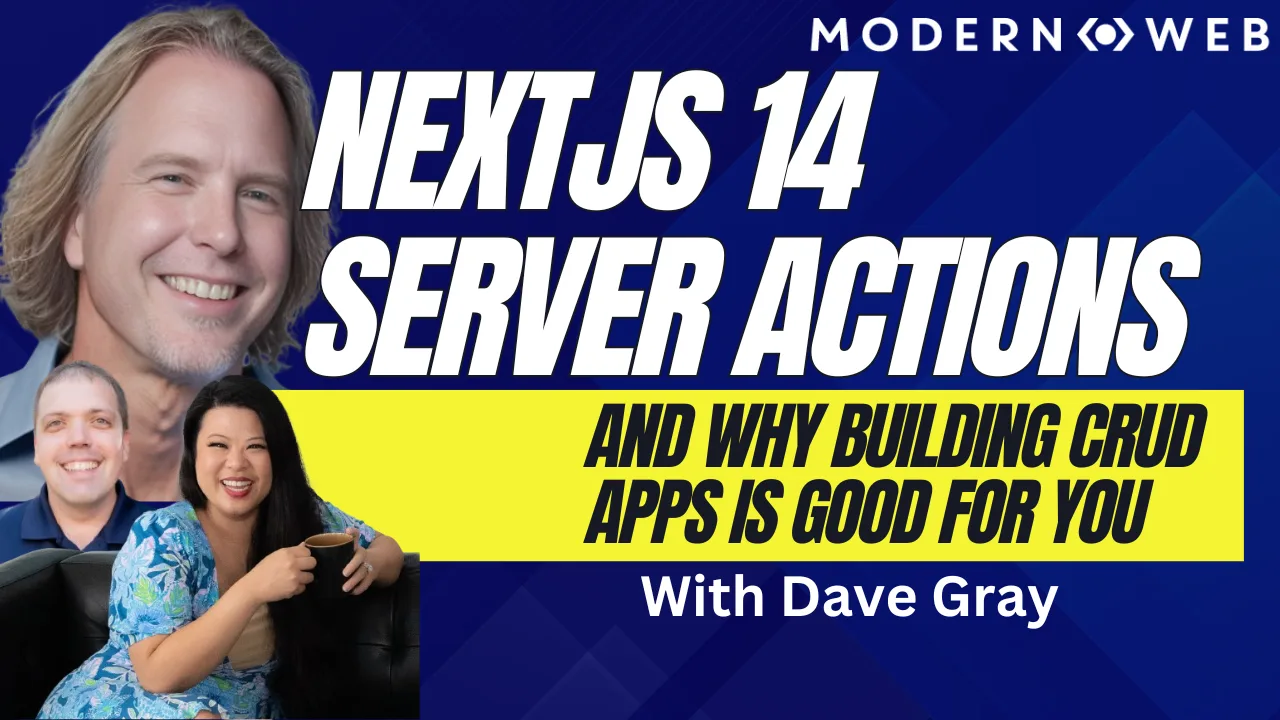
NextJS 14 Server Actions and Why Building CRUD Apps is Good For You with Dave Gray
Dave Gray talks about the shift from dynamic to static content generation, exploring how it can enhance website performance and user experience. Additionally, they explore the new server actions feature in NextJS 14, facilitating more efficient handling of server-side logic. They talk about the front-end development landscape evolving, and frameworks such as Vue, Angular, and Astro gaining traction. Dave advocates for developers to construct simple CRUD applications as a means to effectively comprehend and apply these frameworks. Dave, Tracy, and Rob debate whether developers need to develop a firm understanding of HTML, CSS, and vanilla JavaScript prior to jumping into a more complex framework. This conversation opens the door to an examination of the ongoing struggle of universities to keep pace with the swiftly evolving landscape of web technologies. With the emergence of new frameworks and tools, educational institutions find it challenging to maintain relevance in their curricula. Nevertheless, by focusing on teaching fundamental concepts, universities can empower students with the adaptability needed to learn and integrate new technologies as they arise. Beyond web development, the episode provides valuable insights into content creation and growing a YouTube channel. Dave draws from his experiences, underscoring the importance of consistency and engagement with the algorithm. Whether in web development or content creation, the overarching lesson from this episode is one of persistence. Success in any domain necessitates ongoing learning, adaptability, and a readiness to embrace new challenges and technologies. Download this episode here....
Mar 27, 2024
2 mins